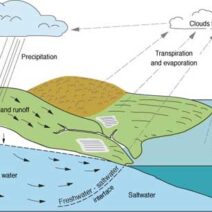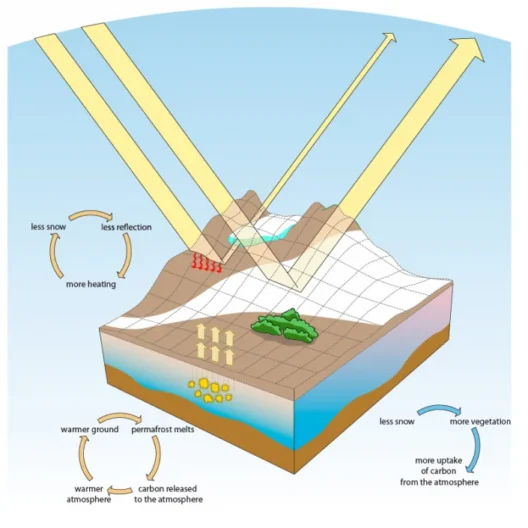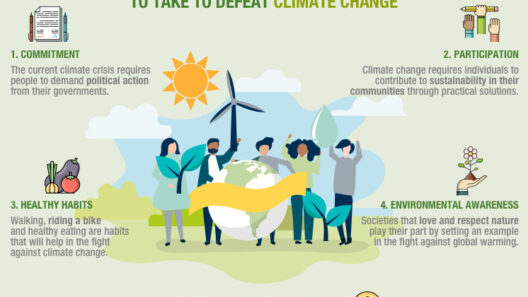Burning fossil fuels is a principal driver of climate change, responsible for both the expedited warming of our planet and the myriad of environmental repercussions that arise from this phenomenon. To understand the relationship between fossil fuel combustion and global temperature increases, we must first delve into the science of greenhouse gases and their interactions with Earth’s atmosphere.
Fossil fuels, comprising coal, oil, and natural gas, are formed from ancient organic materials subjected to heat and pressure over millions of years. When combusted for energy—whether to power vehicles, heat homes, or generate electricity—these fuels release carbon dioxide (CO2) and other greenhouse gases. These emissions create a blanket-like effect in the atmosphere, trapping heat from the sun and preventing it from escaping back into space.
The fundamental mechanism at play is known as the greenhouse effect. This phenomenon occurs when solar radiation reaches Earth, where some of it is absorbed, heating the planet. The surface of the Earth then emits energy back into the atmosphere in the form of long-wave infrared radiation. However, greenhouse gases, like CO2, methane (CH4), and nitrous oxide (N2O), absorb and re-emit some of this radiation, effectively keeping the heat within the atmosphere. Thus, enhanced levels of these gases lead to increased heat retention, which ultimately warms our planet.
Over the past century, human activities, primarily the burning of fossil fuels, have dramatically escalated the concentration of CO2 in the atmosphere. A mere glance at historical data reveals an alarming trend: atmospheric CO2 levels have surged from approximately 280 parts per million (ppm) before the Industrial Revolution to over 400 ppm today. This unprecedented rise correlates strongly with the rise in global temperatures. The Intergovernmental Panel on Climate Change (IPCC) has conducted extensive research indicating that the Earth’s temperature has increased by approximately 1.2 degrees Celsius since pre-industrial times, with even more alarming projections for the near future.
The implications of a warmer planet are far-reaching and profound. Rising temperatures contribute to various environmental phenomena, including more severe weather events, rising sea levels, and altered ecosystems. Droughts may become more frequent in some regions, while others may experience flooding exacerbated by intense storms. These effects not only threaten biodiversity but also disrupt human livelihoods and economies across the globe.
Moreover, the heating of the planet is not uniform. Some areas may warm more drastically than others due to a variety of factors, including changes in ocean currents and local climatic conditions. This uneven distribution of warming can lead to migration of species, shifts in agricultural viability, and even geopolitical conflicts over dwindling resources. Ecosystems are exceptionally sensitive to temperature changes, and many species are already struggling to adapt. Coral reefs, for instance, are experiencing widespread bleaching events as ocean temperatures rise, leading to the loss of biodiversity and the collapse of marine habitats.
In addition to the immediate effects on climate and ecosystems, the continued reliance on fossil fuels poses significant long-term challenges. The social and economic costs associated with climate change are becoming increasingly evident. Natural disasters fueled by climate change place enormous burdens on local and national economies, impacting infrastructure and increasing costs associated with disaster relief. Furthermore, the health implications of burning fossil fuels are profound, with air pollution from combustion-related sources leading to respiratory and cardiovascular diseases that claim millions of lives each year.
Interestingly, the renewable energy sector presents a promising alternative. Transitioning from fossil fuels to sustainable energy sources—such as solar, wind, and hydropower—not only reduces greenhouse gas emissions but also fosters resilience against the adverse effects of climate change. Innovations in technology are enabling a shift towards cleaner energy, and as investment in renewables continues to grow, the prospect of a sustainable energy future seems more attainable. This paradigm shift encapsulates a significant opportunity for progress, urging societies to rethink energy consumption and embrace cleaner alternatives.
The urgency of addressing fossil fuel reliance cannot be overstated. Global initiatives such as the Paris Agreement aim to limit global warming to well below 2 degrees Celsius, striving towards a more sustainable future. However, these goals can only be met through collective action, innovation, and transformation at individual, community, national, and global levels. In this light, fostering awareness and education about the impacts of fossil fuel consumption is paramount.
In conclusion, the question of how burning fossil fuels heats up the planet is multifaceted and complex. It connects to fundamental principles of physics and biology, interwoven with the fabric of socio-economic and environmental justice. As our world grapples with the consequences of climate change, understanding this connection is vital for informed action. Moving forward, society must rise to the challenge, embracing not just responsibility but also creativity and resilience, as we pioneer pathways toward a sustainable future.






